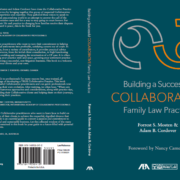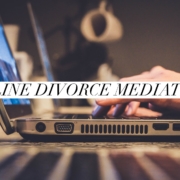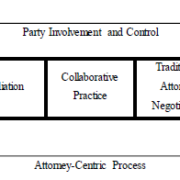Collaborative Divorce Is Not Right For You If…
Collaborative divorce is not for everyone. Sure, most families going through divorce would benefit from the private, secure, and non-adversarial nature of the collaborative process. However, it may not be right for you if certain things are important to you.
Collaborative divorce is not right for you if…
You are seeking revenge
If you are seeking revenge, collaborative divorce is not right for you. The collaborative process will not satisfy your need to see your spouse suffer. This is because, at the beginning of the case, everyone signs a collaborative participation agreement in which the spouses agree to engage in good faith discussions to reach a resolution. Each spouse has his or her own attorney, and the attorneys are there solely to help the clients reach an agreement. The attorneys cannot be used for opposition research, lengthy motion practice, or accusatory litigation.
 However, the attorneys are also there to safeguard the process. If an attorney believes that his or her client is no longer acting in good faith, or is only attempting to damage the other spouse, the attorney may have the right to terminate the process. This shuts down behavior meant to harass the other spouse. If the attorney believes his or her client can put the need for revenge aside, the collaborative process may continue. If not, the collaborative attorney has a duty to ensure that the process is not being used as a tool for vengeance.
However, the attorneys are also there to safeguard the process. If an attorney believes that his or her client is no longer acting in good faith, or is only attempting to damage the other spouse, the attorney may have the right to terminate the process. This shuts down behavior meant to harass the other spouse. If the attorney believes his or her client can put the need for revenge aside, the collaborative process may continue. If not, the collaborative attorney has a duty to ensure that the process is not being used as a tool for vengeance.
Further, the collaborative process generally involves a neutral facilitator, with a background in communication, childhood development, and family and power dynamics. The facilitator helps keep conversations productive and forward-focused rather than centered on past grievances. The facilitator is also there to address power imbalances and shortcut vengeful actions and communications.
You need your “Day In Court”
If you need a judge to say that you are right and your spouse is wrong, collaborative divorce is not right for you. In the collaborative process, you only go in front of a judge once you have reached an agreement. The judge is not there to make decisions; the judge is only there to review and (except under narrow circumstances) ratify decisions you and your spouse have reached.
In truth, even in traditional divorce litigation, parties rarely get the satisfaction of a judge telling them they are right. Usually, the judge sees that both parties are acting poorly. This is because the court system is an adversarial system, where both parties are trying to make themselves look good and the other look bad. Oftentimes, by the end of a divorce trial, both spouses look slimy and seem to hate one another more than they love their children.
You are trying to hide assets
Collaborative divorce is not right for you if you are trying to hide assets. One of the hallmarks of the collaborative process is transparency. In the collaborative participation agreement, you and your spouse agree to provide all relevant information. If you refuse to be transparent, your collaborative attorney will have the right to withdraw or terminate the collaborative process. Collaborative attorneys take the responsibility of engendering transparency very seriously.
But collaborative divorce safeguards transparency in another way. The spouses usually retain a neutral financial professional, generally with a background as a financial planner or forensic accountant. The financial professional gathers relevant financial information and documents. By working with both spouses and creating a balance sheet of assets and debts, along with a schedule of income and expenses, the financial professional will usually spot if anything looks fishy. If so, the financial professional will dig in until both spouses are satisfied that you can make informed decisions.
As stated above, collaborative divorce is not for everyone. However, if you are willing to move forward in your life without seeking revenge or being told you are right, and if you are willing to be transparent, the collaborative process is likely right for you.
Adam B. Cordover is co-editor and co-author of an upcoming American Bar Association book on collaborative family law. He trains attorneys, mental health professionals, and financial professionals how to offer collaborative services with the Tampa Bay Collaborative Trainers.







